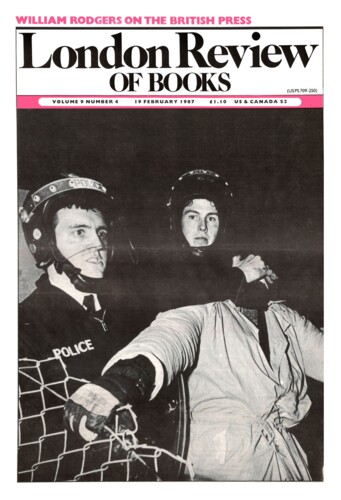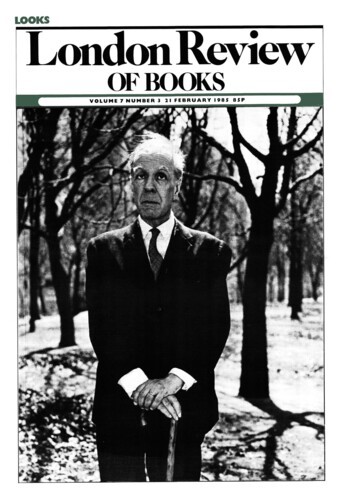Soldier, Saint
Stuart Airlie, 19 February 1987
Most of us are familiar with Jacob Burckhardt’s thesis that the Italian Renaissance witnessed the ‘discovery of the individual’ while Medieval man’s self-consciousness simply took corporate form: ‘Man was conscious of himself only as a member of a race, a people, a party, a corporation, a family.’ This view is no longer held in its crude state, and sophisticated work by Colin Morris and other Medievalists has made a strong case for the 12th century, with its ‘Renaissance’, as the era of the discovery of individual self-consciousness. If a biography of a Medieval figure is to be attempted, the 12th century offers a fruitful terrain: the increase in written sources for this period makes the biographical approach (just) possible, while the birth of individual self-consciousness makes it appropriate.



